2017 SkS Weekly Climate Change & Global Warming Digest #52
Posted on 31 December 2017 by John Hartz
Happy New Year!... Story of the Week... Analysis of the Week... Toon of the Week... Quote of the Week... Coming Soon on SkS... Poster of the Week... SkS Week in Review... 97 Hours of Consensus...
Happy New Year!
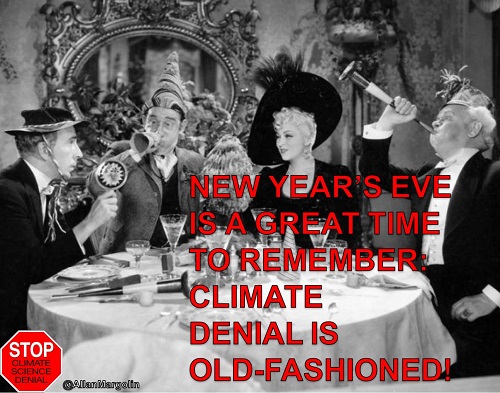
Happy New Year from the all-volunteer, SkS author team!
Story of the Week...
How We Know It Was Climate Change
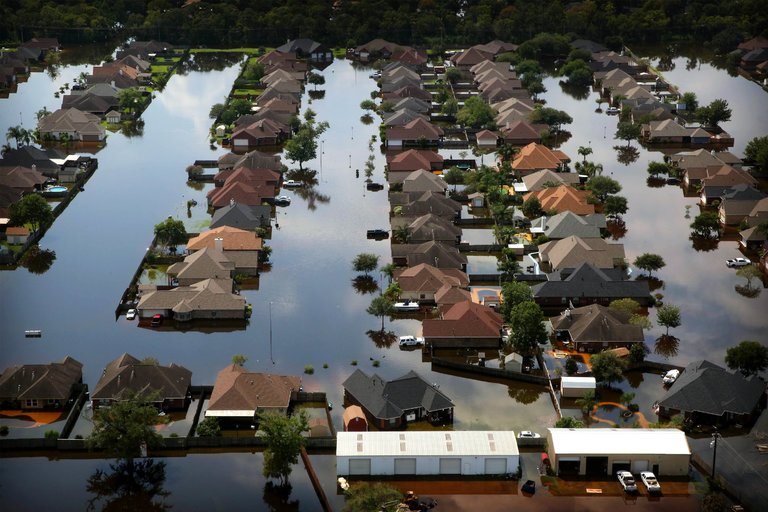
Flooding south of Houston in September in the wake of Hurricane Harvey. Credit Barbara Davidson for The New York Times
This was a year of devastating weather, including historic hurricanes and wildfires here in the United States. Did climate change play a role? Increasingly, scientists are able to answer that question — and increasingly, the answer is yes.
My lab recently published a new framework for examining connections between global warming and extreme events. Other scientists are doing similar research. How would we go about testing whether global warming has influenced the events that occurred this year?
Consider Hurricane Harvey, which caused enormous destruction along the Gulf Coast; it will cost an estimated $180 billion to recover from the hurricane’s storm surge, high winds and record-setting precipitation and flooding. Did global warming contribute to this disaster?
The word “contribute” is key. This doesn’t mean that without global warming, there wouldn’t have been a hurricane. Rather, the question is whether changes in the climate raised the odds of producing extreme conditions.
How We Know It Was Climate Change, Opinion by Noah S Diffenbach, Sunday Review, New York Times, Dec 29, 2017
Analysis of the Week...
The President Doesn't Care to Understand Global Warming
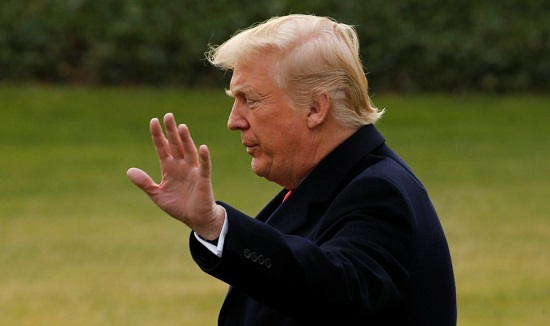
President Trump departs for holiday travel to his Mar-a-Lago estate on Friday, December 22
In the first novel ever written about Sherlock Homes, we learn something peculiar about the London detective. Holmes, supposedly a modern man and a keen expert in the workings of the world, does not know how the solar system works. Specifically he is unfamiliar with the heliocentric Copernican model, which, upon its slow acceptance in the 17th century, revolutionized Western thought about the place of our species in the universe.
“What the deuce is it to me?” Holmes asks his sputtering soon-to-be sidekick, Dr. Watson. “You say that we go ’round the sun. If we went round the moon it would not make a pennyworth of difference to me or to my work.”
Brains are a kind of “little empty attic,” says the detective, and they should be filled only with furniture that’s useful to one’s line of work. Holmes doesn’t doubt the Copernican model; he simply has no use for it in solving murder cases. “Now that I do know it,” he adds, “I shall do my best to forget it.”
Thursday night, as record lows gripped most of the country’s northern half, President Trump clarified that he does not understand another revolution in our knowledge of the natural order of things: the theory of human-driven climate change.
The President Doesn't Care to Understand Global Warming by Robinson Meyer, The Atlantic, Dec 29, 2017
Toon of the Week...
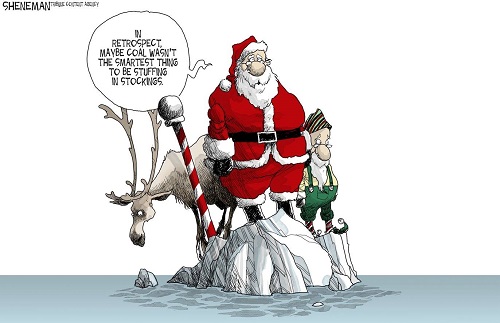
Quote of the Week...
I like to think of the Earth’s climate like a heavy train. A train cannot stop quickly; the brakes have to be applied far ahead of an obstacle. The ocean is our “climate train.”
US government climate report looks at how the oceans are buffering climate change by John Abraham, Climate Consensus - the 97%, Guardian, Dec 26, 2017
Coming Soon on SkS...
- On its hundredth birthday in 1959, Edward Teller warned the oil industry about global warming' (Ben Franta)
- 2017 was the hottest year on record without an El Niño, thanks to global warming (Dana)
- SkS Year in Review (Baerbel)
- Guest Post (John Abraham)
- New research this week (Ari)
- 2018 SkS Weekly Climate Change & Global Warming News Roundup #1 (John Hartz)
- 2018 SkS Weekly Climate Change & Global Warming Digest #1 (John Hartz)
Poster of the Week...
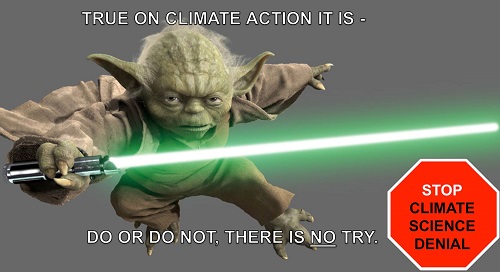
SkS Week in Review...
- 2017 SkS Weekly Climate Change & Global Warming News Roundup #52 by John Hartz
- New research, December 18-24, 2017 by Ari Jokimäki
- From the eMail Bag: Carbon Isotopes, Part 2: The Delta Notation by David Kirtley
- Fake news is a threat to humanity, but scientists may have a solution by Dana Nuccitelli (Climate Consensus - the 97%, Guardian)
- US government climate report looks at how the oceans are buffering climate change by John Abraham (Climate Consensus - the 97%, Guardian)
- Some curious things about Svensmark et al. reference list by Ari Jokimäki
- 2017 SkS Weekly Climate Change & Global Warming Digest #51 by John Hartz
97 Hours of Consensus...
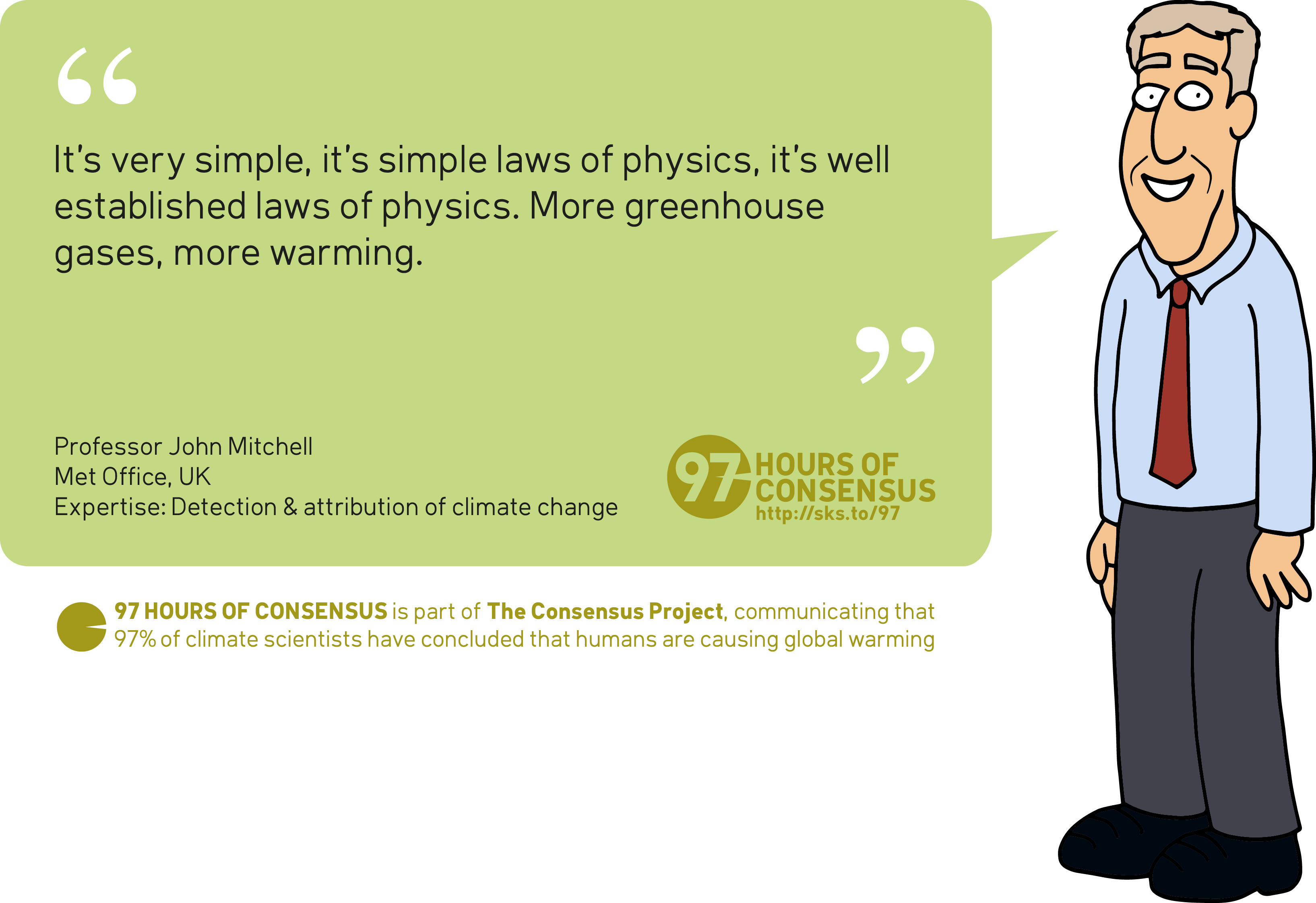































 Arguments
Arguments






























Thank you John and the Team for another year of enlightening about CS.
As other commenter (nigelj) has put on other weekly thread, this year will go to history as the "dumbest year" (so far) in politics. While agreeing, I also note that we're not over through dark ages yet: t-man the clown can still conceive sillier, more outragous ideas in next 3 years in office, if Congress does not impeach him.
In that disgusting reality, SkS shines the bright light of knowledge & hope. May next year be better and science and reason wins!
Regarding this denialist slogan "we had a cold winter, or snow storm, so global warming is a myth". (or similar statements) I'm sure people must realise it's a ridiculous statement, nobody is that dumb are they?
It's got to be either deliberate ignorance, or game playing to annoy people and bait them. Be careful guys: climate change is not a time for playing silly games, and provoking people.
The 'harm' to others, particularly to future generations, from the continued burning of fossil fuels needs to become understood to be simply unacceptable. That needs to become the Common Sense around the world.
The defense that climate change impacts 'will not be that bad' should not be debated, other than to clearly state that creating any net-negative consequences for 'Others including future generations' is unacceptable, not an option.
'Balancing' the 'Positive current day benefits a portion of humanity get from the activity' with 'the negative consequences experienced by Others including future generations' is a fool's game, popular with pursuers of profitable Private Interests.
Claiming the defense that the results will not be catastrophic to others is like a gang-thug claiming that their shop-damaging or bone-breaking or in-fighting-with-other-gangs (or threats to do so) are OK because it isn't 'killing'.
The insideous measures of prosperity and success many economists deludedly follow will actually show 'positive results' as a result of the efforts required to 'get back to where things were before a disaster'.
There is profit to be made from disaster recovery, and from post-conflict re-building. And Naomi Klein wrote about many other ways that undeserving people can Win more Private Interest benefit from disasters in "The Shock Doctrine: The Rise of Disaster Capitalism".
Pursuers of benefit from tragedy probably even hope to be able to personally profit from any increased magnitude of disaster resulting from rapid climate changes, including the increased civil conflict that will occur due to climate change (part of the reason the US Department of Defense includes climate change as a significant threat).